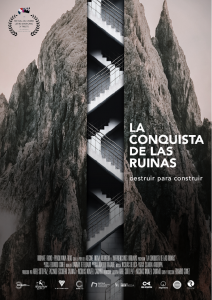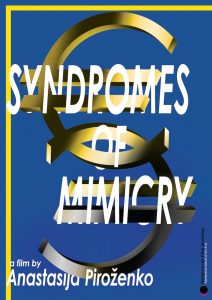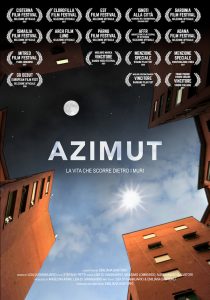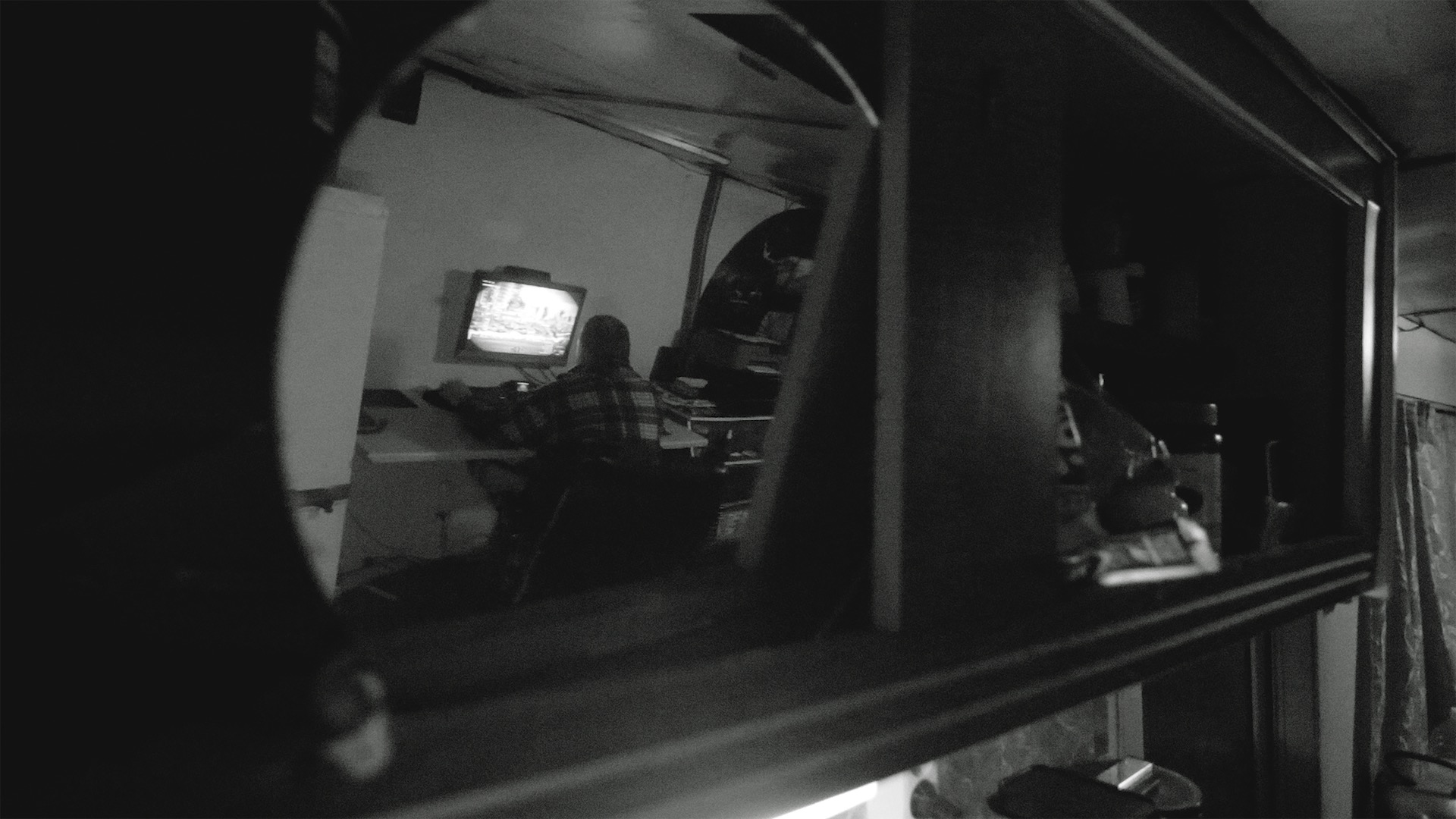
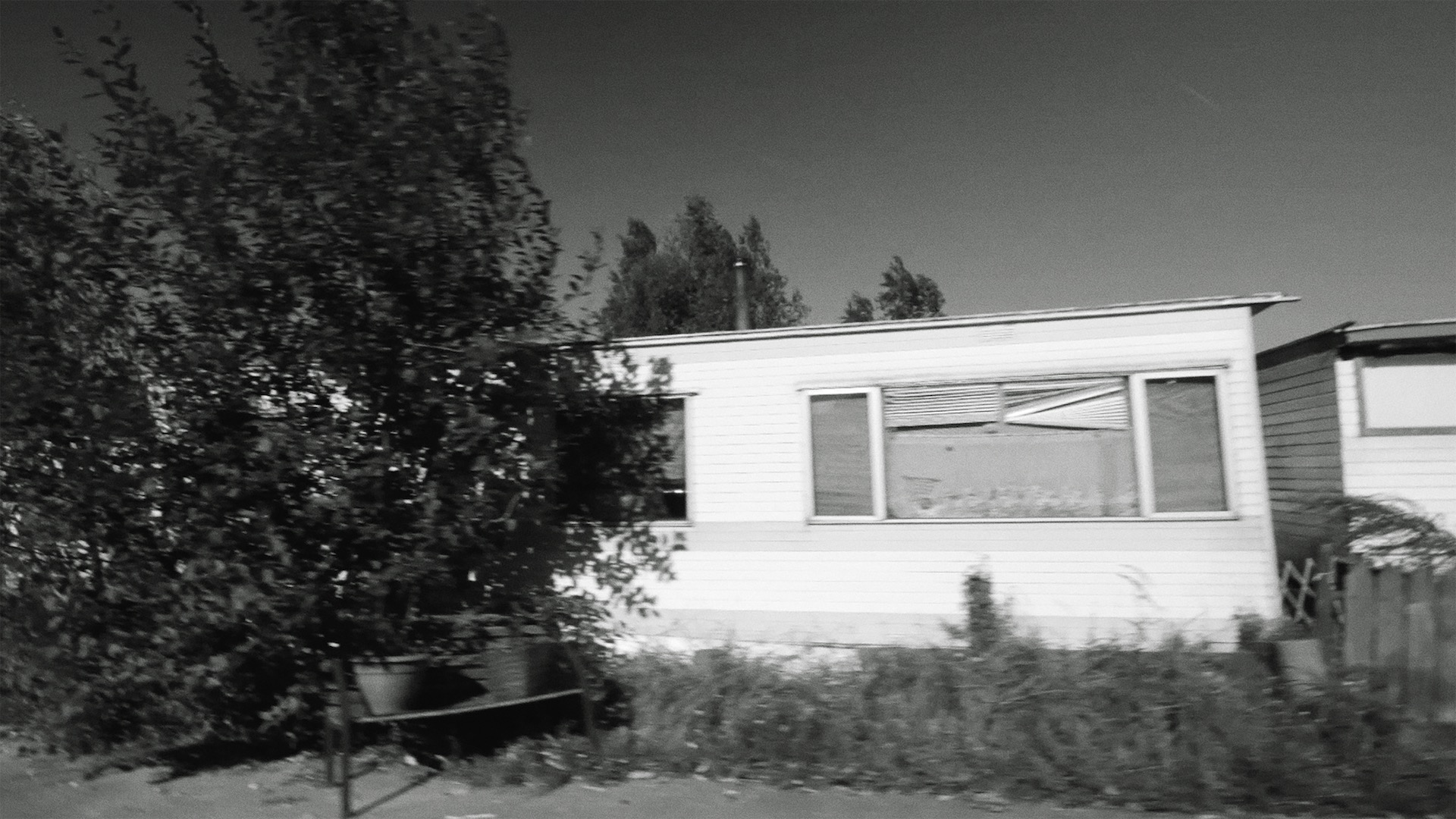
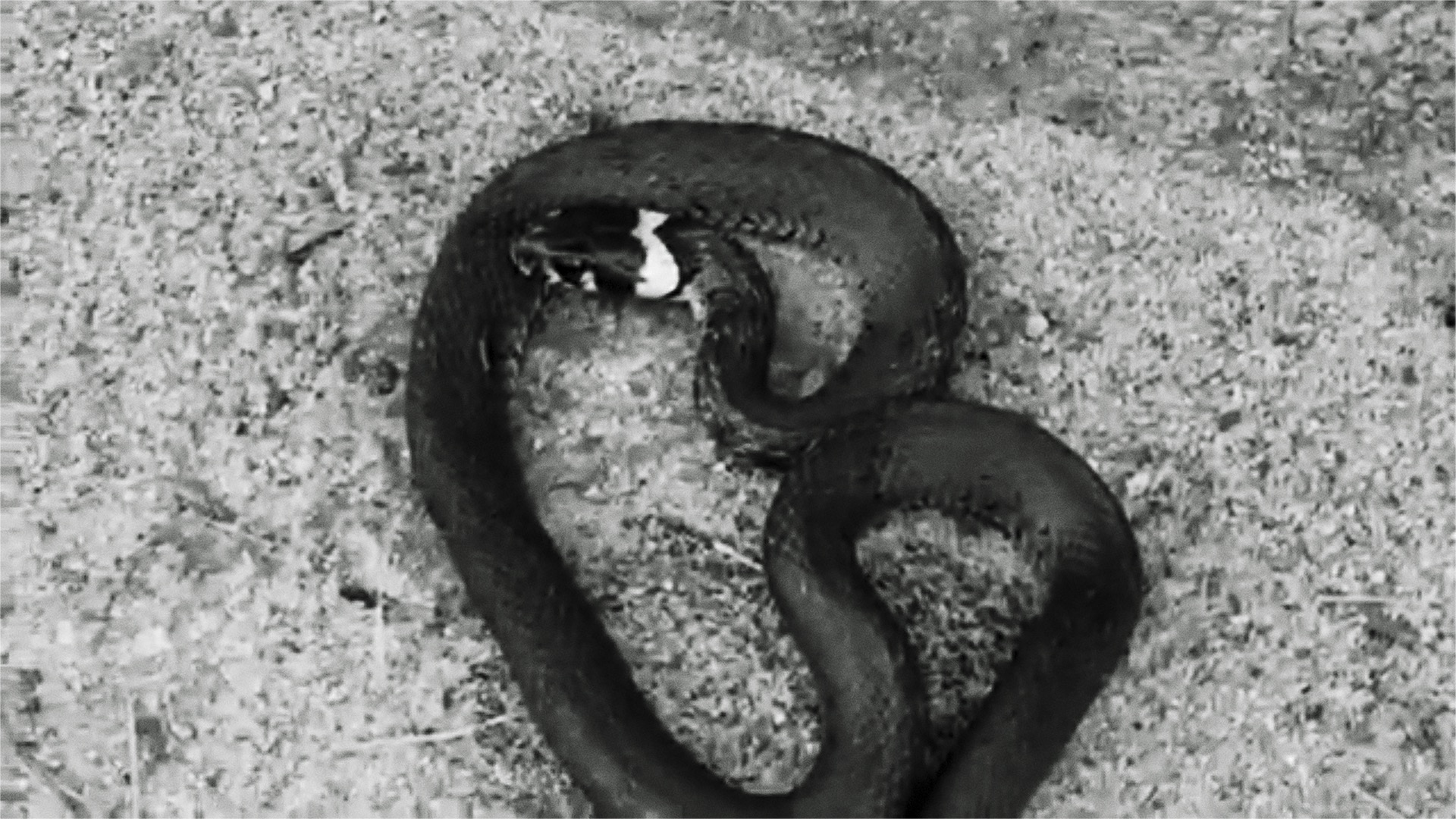
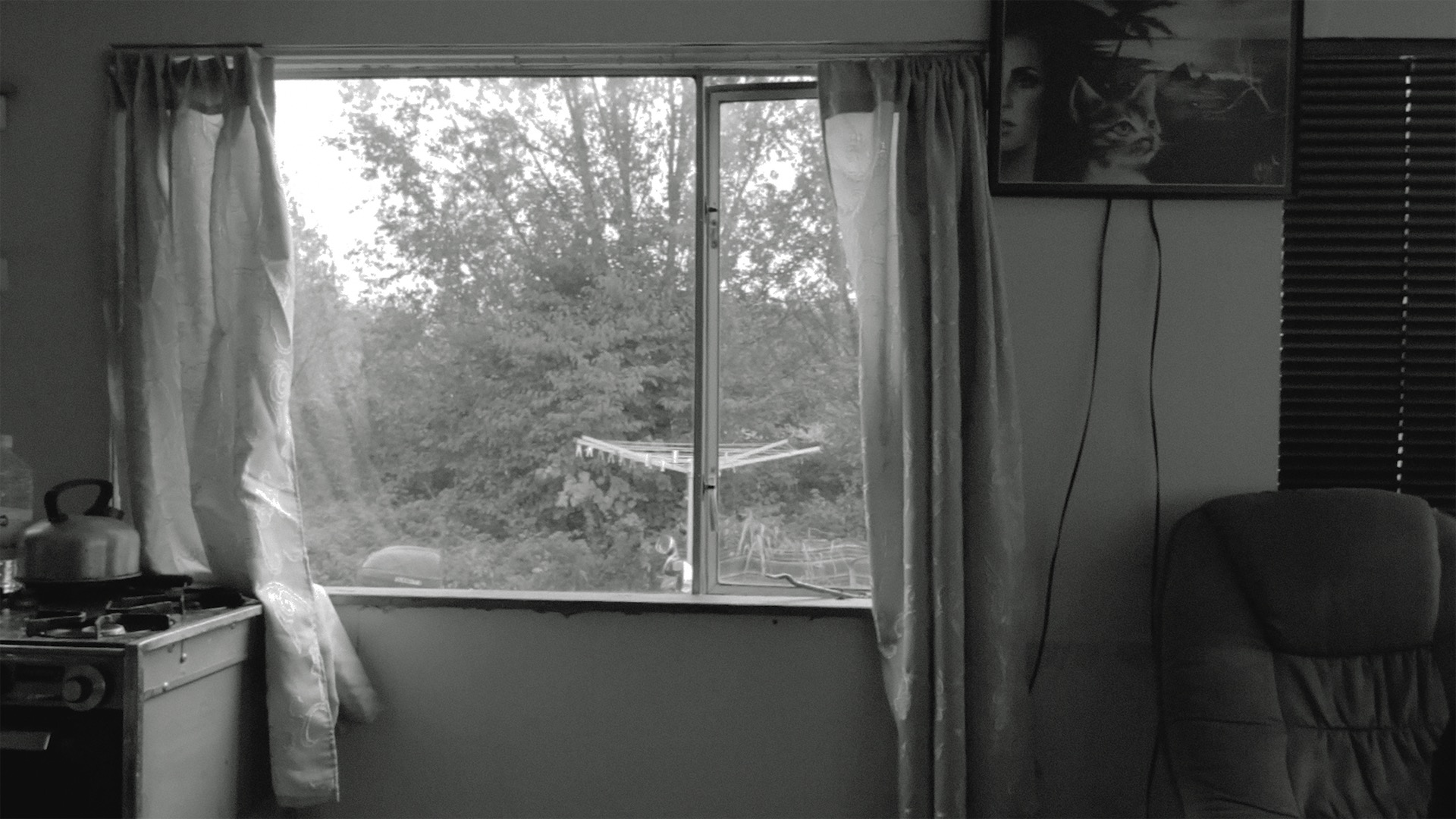
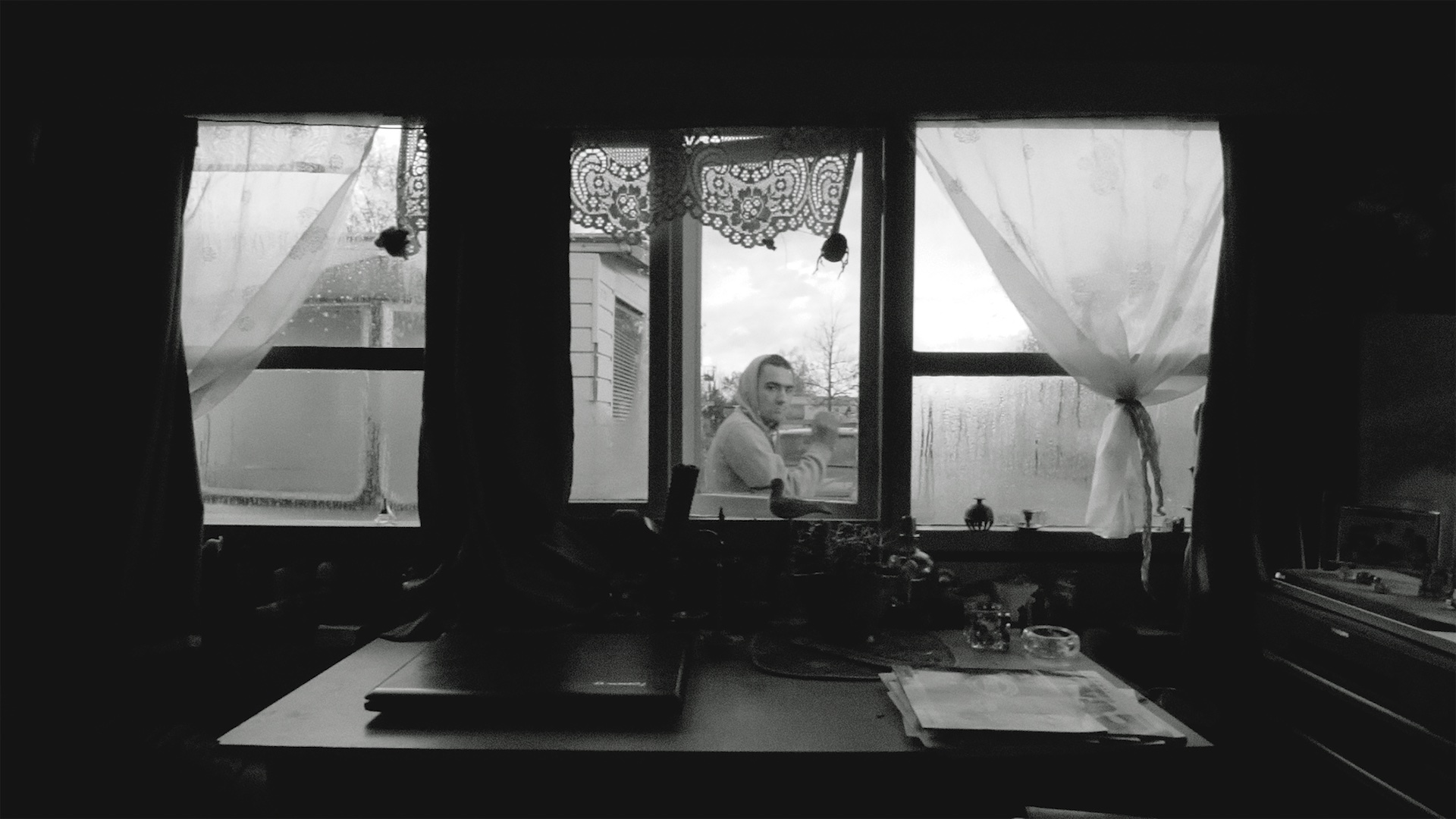
They are known as the city nomads. They live in a trailer village on the outskirts of Amsterdam and are viewed as poor, low-skilled and addicts. Some of them came here out of necessity, being misfits in our society or simply because of idealistic views. For them, this self-established village gives a sense of freedom and a possibility to build their lives the way they want it. But the eerie feeling of temporality of this squatted place is always present.
“One of the biggest illusions we live with is that we are going to make it,” – says one of the trailer park inhabitants. But there is much more to life in this camping village. People’s dreams, philosophies, destinies are a testimony of the effects of late capitalism on everyday life, from which the old deities have been disappearing.
The film juxtaposes Lithuanian mythology on household deities and the current situation in the Netherlands, where the housing crisis is pushing people to live on the outskirts of the city. The story slowly builds up through the encounters with the inhabitants of this unique place.
Son conocidos como ‘nómadas urbanos’. Viven en un barrio de trailers en las afueras de Ámsterdam y son vistos como pobres, sin habilidades y adictos. Algunos de ellos llegaron por necesidad, siendo desplazados de la sociedad o simplemente por visiones útopicas e idealistas. Para ellos, este barrio auto-creado es un signo de libertad, la posibilidad de crear la vida que quieren. Pero el misterioso sentimiento de temporalidad de este lugar ocupado está siempre presente.
‘Una de las ilusiones más grandes es pensar que lo lograremos’ – dice uno de los habitantes. Pero hay mucho más que la vida de este campamento. Los sueños de las personas, la filosofía, el destino, son testimonio de los efectos del capitalismo en la vida cotidiana, de la cual los antiguos dioses y creencias están desapareciendo.
El film yuxtapone la mitología lituana de los dioses del hogar con la situación actual en los Países Bajos, donde la crisis urbana está impulsando a la gente a vivir en los suburbios. La historia se crea lentamente por medio de encuentros con los habitantes de este lugar único.
Il film giustappone i dei della protezione della casa della mitologia lituana e la situazione attuale in Amsterdam, dove gli alti prezzi degli affitti portano alle persone a vivere nei sobborghi della città.
Festivals & Awards
- Ji.hlava International Documentary Film Festival (Czech Republic, 2021) – World premiere. Academy Awards Qualifying Festival
- Bardolino Film Festival (Italy, 2022)
- Pärnu Film Festival (Estonia, 2022)
- Festival Gollut (Spain, 2022)
- SanGio Verona Video Festival (Italy, 2022)
- Storie Parallele Film Festival (Italy, 2022) – winner Best Short Film
- Saratov Sufferings Documentary Film Festival (Russia, 2022)
- Cinetekton! Festival Internacional de Cine y Arquitectura (Mexico, 2022)
- Lublin Film Festival (Poland, 2022)
- Amarcort Film Festival (Italy, 2022)
- Dhaka International Film Festival (Bangladesh, 2023)
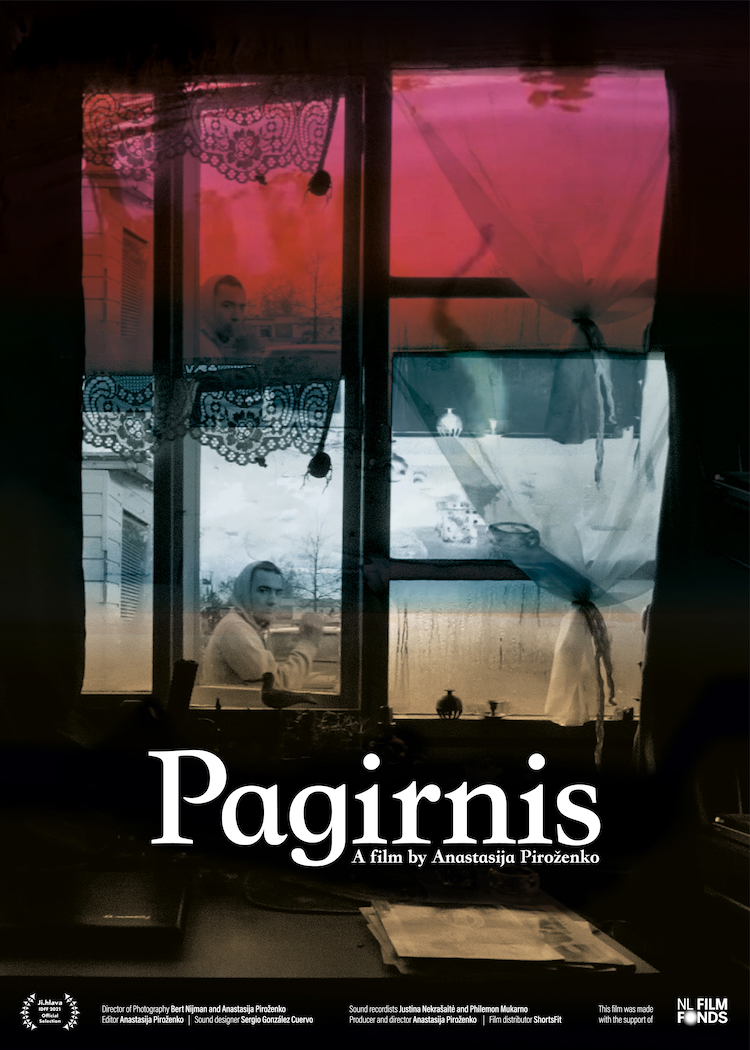
Director’s notes
The subject of identity, utopia, and community are common threads in my work. The relationship between humans and their living spaces particularly interests me. With my previous film BEYOND THE SEA, I dived deeper into exploring the relationship between the urban structures and their effect on the inhabitants in the first planned Dutch city – Emmen.
With PAGIRNIS I continue this journey, this time turning my attention to the city I live in and relate to on a personal level. I’ve been living in Amsterdam for the past 9 years and I witnessed how much it has changed in this relatively short time. The spaces that were previously seen as unusable, unattractive, now are in high demand. Even though these types of developments might be seen as a positive economic benefit for the city, on a social level these rapid changes have negative effects: social structures have been torn apart, marginalized groups have been further pushed out of the city.
I found out about this trailer village in 2013, shortly after I moved into Amsterdam. The feeling of mystery and stillness of the place, drew me to find out more and meet the inhabitants. Once I started visiting them, different stories of the people unfolded in front of me. The most precious finding that I learned was that these people are proud of their trailer houses and the inner cosmoses they created in that place.
PAGIRNIS distinguishes itself through the unique storyline that draws the parallel between vanishing Lithuanian mythology and the nomadic way of living in the Netherlands. The metaphorical serpent creates a subtle line in the film, which appears as the bond between humans and animals. The sound design plays a big role in this film, which creates an atmosphere of unease and mystery. The feeling of the temporality of this place is created by the episodic narrative structure. The film image presented almost entirely in B&W enhancing the nostalgia and fragility in the situation of the place, visually providing stark contrasts between reality and a dreamlike view of the world.
El tema de la identidad, comunidad y utopía están muy presentes en mis trabajo. La relación de los humanos con el espacio habitable es algo que me interesa mucho. En mis trabajos anteriores ‘Beyond the sea’ exploré la relación entre las estructuras urbanas y el efecto en sus habitantes en la primer ciudad de los Países Bajos: Emmen.
Con Pagirnis, continuo este camino, con una atención particular en la ciudad en la que vivo desde un lugar personal. Vivo en Ámsterdam desde hace 9 años y soy testigo de cuanto ha cambiado en muy corto tiempo. Los espacioc que previamente eran inusables, no atractivos, ahora tienen gran demanda. Incluso si este tipo de desarrollo podría tener un aspecto positivo para la economía de la ciudad, desde el lado social, estos cambios violentos tienen puntos negativos: la estructura social se quebró, marginalizando grupos afuera de la ciudad.
Me enteré de este barrio en 2013, poco después de mudarme a Ámsterdam. El misterio y la sensación de quietud me llevaron a conocer a sus habitantes. Cuando los empecé a visitar, distintas historias se abrieron delante de mí. La lección más bella es aprender que ellos están orgullosos de sus casas móviles y del cosmos que se crea en el campamento.
Pagirnis se distingue por una unica línea narrativa que hace un paralelo entre la mitología lituana en extinción y el modo nómade de vivir en los Países Bajos. La metáfora de la serpiente crea una línea sutil, ligando animales y humanos. El diseño sonoro tiene un rol muy importante, creando una atmósfera de misterio y atención. El tratamiento visual en blanco y negro, enfatiza la nostalgia y la fragilidad de la situación, resaltando los contrastes entre lo real y la mirada de ensueño del mundo.
You may also like
directed and produced by
cinematography by
Bert Nijman, Anastasija Pirozenko
editing by
Anastasija Pirozenko
sound design
Sergio Gonzalez Cuervo
distribution & world sales
Anastasija's Bio
Anastasija Pirozenko (born 1988) is an audio-visual artist and filmmaker from Lithuania based in Amsterdam. She holds a BA in Photography and Media Arts from Vilnius Academy of Arts (2012) and a MA in Film from the Netherlands Film Academy (2016). Her artistic practice spans film, video installations, and photography. In her work, Anastasija explores the concepts of belonging, community and utopia. Her work has been shown at international film festivals as well as art events, including Visions du Reel, Int. Short Film Festival Oberhausen, and VideoEX - Experimental Film & Video Festival.
Filmography
Pagirnis (22 min., 2021), Beyond the sea (27 min., 2020), Syndromes of mimicry (17 min., 2017), God’s Eaters (14 min., 2013), Temporarily (11 min., 2011)



